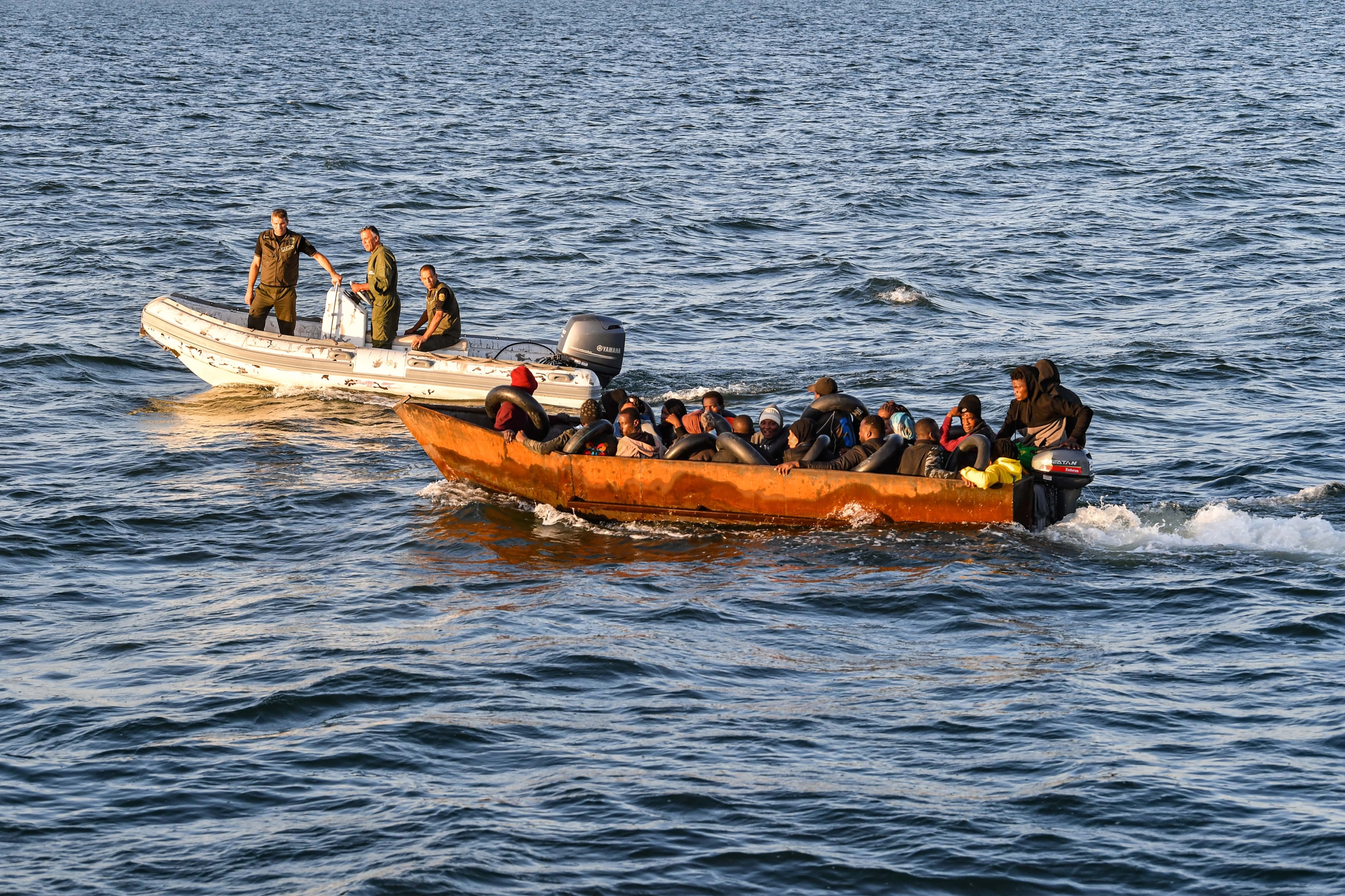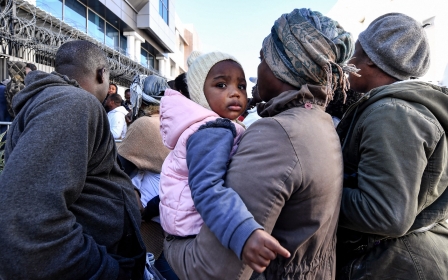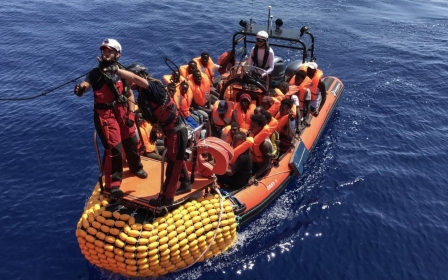Tunisia: 24 die at sea as drownings spike amid immigration crackdown

At least 14 bodies were recovered on Thursday by Tunisian authorities after a boat capsized off the coast a day earlier, taking the total death toll to 24.
The boat, carrying people from sub-Saharan African countries attempting to cross the Mediterranean Sea to reach Europe, capsized near the city of Sfax, leading to a search and rescue operation.
Authorities said 76 people were rescued while at least 30 others were missing.
The vessels used for the crossings are often overcrowded, poorly maintained, and have unreliable engines, leading to a spike in drownings in recent weeks. Just last month, at least 52 people died and 70 went missing in similar incidents.
According to Tunisian authorities, more than 14,000 people, most of them from sub-Saharan Africa, were intercepted or rescued in the first three months of this year while trying to cross to Europe, five times more than figures recorded in the same period last year.
New MEE newsletter: Jerusalem Dispatch
Sign up to get the latest insights and analysis on Israel-Palestine, alongside Turkey Unpacked and other MEE newsletters
The UN agency also said on Wednesday that the first quarter of this year saw 441 confirmed deaths, the most on the central Mediterranean route since 2017. The real number is likely to be higher.
“I fear that these deaths have been normalised. States must respond,” said Antonio Vitorino, director general of the International Organisation for Migration (IOM). “Delays and gaps in state-led [search and rescue operations] are costing human lives.”
Since 2014, more than 20,700 people have drowned or disappeared in the central Mediterranean while making the crossing, according to the International Organisation for Migration (IOM).
Crackdown on Black immigrants
The recent surge in crossings and deaths in the Mediterranean Sea off the coast of Tunisia comes amid a crackdown by the government on sub-Saharan African immigrants.
In February, Tunisian President Kais Saied's urged authorities to take "urgent measures" to tackle "irregular immigration".
Saied added that Tunisia is threatened by Black immigrants from sub-Saharan Africa, who he claimed, without evidence, are leading a demographic change.
“Saied's racist campaign has increased demand for spots on boats,” Monika Marks, a professor of Middle East politics at NYU Abu Dhabi, told Middle East Eye.
"That has been driving up the crossing prices and increasing the chances that smugglers overcrowd the rafts, making them even more dangerous."
'We've been kicked out of our rooms for no reasons... They don't value our lives here so we need to leave'
- A refugee
In the aftermath of Saied's comments, Tunisia saw a sharp increase in violence and eviction of Black immigrants.
“We’ve been kicked out of our rooms for no reasons. when we asked our landlord they say the president of Tunisia decided that we can’t stay anymore,” a refugee in Tunisia told MEE under the condition of anonymity.
“They don’t value our lives here so we need to leave."
Many have since camped in front of the UN’s refugee agency in Tunis. But this week the informal camp was dismantled by security forces and people were tear-gassed and abused by police.
“Mob violence and police brutality against Black migrants and refugees in Tunisia - including reports of rape and torture by police forces against them - have left many Black migrants and refugees freshly destitute, homeless, and unsafe,” said Marks, who's been in touch with refugees on the ground.
Bram Frouws, director of Mixed Migration Centre, told MEE that the recent crackdown has contributed to the surge in crossings, but that departures are also linked to the worsening political and economic situation in Tunisia.
“Those who had already planned to migrate onwards from Tunisia may have decided to accelerate their departure due to recent events," said Frouws.
Boats leaving Tunisia often head to the Italian island of Lampedusa, which is about 150km from the Tunisian coast and considered a steppingstone toward continental Europe.
Italy's right-wing government declared a state of emergency on immigration on Tuesday, citing a significant increase in Mediterranean crossings.
The move grants authorities the power to expedite the deportation of migrants. Italy has also called on the European Union to take stronger measures to prevent sea arrivals.
Tunisia became a new departure point for immigrants wishing to reach Europe after the situation in Libya worsened over the years.
A recent UN probe placed blame on the EU for facilitating crimes against humanity in Libya through its funding and training for the country’s coast guard, which added to more than $98m.
Middle East Eye delivers independent and unrivalled coverage and analysis of the Middle East, North Africa and beyond. To learn more about republishing this content and the associated fees, please fill out this form. More about MEE can be found here.




